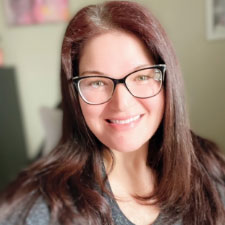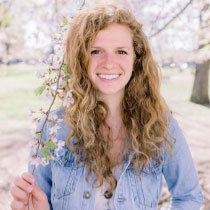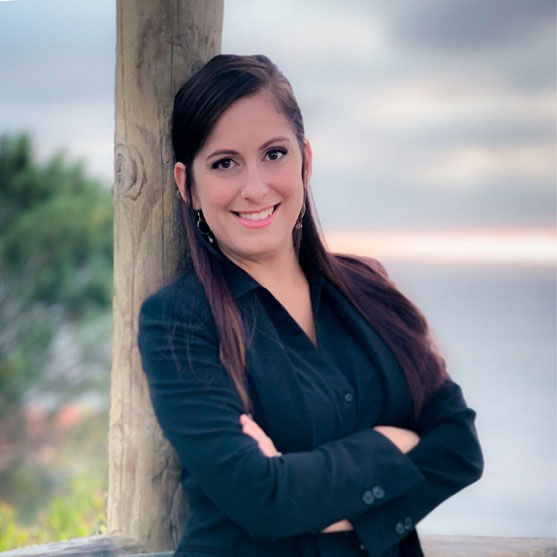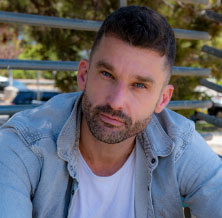MA in Clinical Psychology (Low Residency)
Advocate for and implement change by helping others.
Marriage and Family Therapists and Professional Clinical Counselors are engaged people involved in real relationships that require commitment and genuine emotions in the midst of professional work. At Antioch University, you’ll join a community of students and faculty who are active, compassionate, and socially conscious. Offered as a low residency program with conveniently scheduled courses, we plan to increase access to training, so graduates are prepared to meet needs in the community of which we are a part.
This degree is offered by Antioch University's Los Angeles Campus.
Program Overview
The Master of Arts in Clinical Psychology program prepares you to work in contemporary psychotherapy by introducing you to a wide range of theories and techniques. You are challenged to look inward and arrive at new psychological insights that will help you develop greater depth as a psychotherapist and socially conscious citizen of the world.
The 90-quarter unit program meets the education requirements in the state of California for licensure as a Marriage and Family Therapist (MFT). Students can also choose to complete additional courses to qualify for licensure as a Professional Clinical Counselor (PCC). Our Master of Arts in Clinical Psychology program is known for the successful preparation of highly trained, multiculturally competent therapists. This program will help you develop expertise in emerging areas of practice, enrich your professional experience, increase appreciation for cultural diversity, and develop a successful career path. Additional specializations are available in our on-campus program.
You are encouraged to explore multiple perspectives and approaches and to engage instructors and peers in collaborative learning experiences. Beyond the courses, you have the opportunity to apply your knowledge and skills by practicing therapy under professional supervision at one of over 100 affiliated mental health services agencies. Students seeking licensure outside of California must have clinical training sites approved by the Clinical Training director.
The Master of Arts in Clinical Psychology degree is a 90-quarter unit program, taken over eight full-time quarters or 16 part-time quarters.
PSY-5100: Introduction to Psychotherapy Theory and Practice (0 units)
New students may also be required to complete PSY-5100: Introduction to Psychotherapy Theory and Practice during or (at the student’s option) prior to the first quarter of study. If so, the course must be successfully completed in order to advance in the program.
The following pertains to a student who earns a No Credit evaluation in this course:
- If a student fails the final paper for PSY-5100: Introduction to Psychotherapy Theory and Practice, the student has one opportunity to redo it within the same quarter.
If the student does not pass the course the second time, the following consequence will occur:
- The student will be withdrawn from the MAP Program. The student’s registration may be voided if necessary. The student, following procedures specified elsewhere in this catalog, may appeal the No Credit decision and its consequences.
If a student receives a No Credit for some reason other than failure to successfully complete the final exam/final paper, the student may appeal to the Psychology Department Chair to request remediation that does not result in withdrawal from the program.
Waiver of the PSY 5100 Requirement
Normally, an incoming student would not be required to take this course if the student has, within the last five years, completed a psychology degree or taken and achieved a B or better on the following coursework at a regionally accredited college or university:
- Personality Theory
- Abnormal Psychology
- Developmental Psychology
If, however, in the opinion of the admissions interviewer, an incoming student needs the coursework to prepare them for our program, the student may be required to take the course regardless of prior study in psychology.
Additional Information
MAP Low Residency students will take courses in three different modalities: Synchronous, Asynchronous, and Workshop formats.
Synchronous weekly core courses on Tuesdays and Wednesdays at 12:00 PM, 5:30 PM, and 7:30 PM for 90 minutes. Elective courses are offered on Thursdays at various times and lengths.
Asynchronous courses are offered every quarter for specific topics. These courses are self-paced and require the student to log in and respond to discussion posts and assignments weekly.
A variety of courses are offered as workshops each quarter. Workshops meet on Saturday or Sunday, typically from 9:00 AM to 5:00 PM.
PSY-5000W Graduate Writing Seminar and PSY-5100 Intro to Psych
Students may be required to take PSY-5000W and/or PSY-5100 in their first quarter. These classes are zero units and will be offered on both a weekday evening and during the day on Friday.
PSY-5100 is required of students who do not have an undergraduate degree in Psychology. Prospective students can also take this course before starting the program.
All students will take a writing assessment after New Student Orientation. This assessment will be evaluated by the second week of the quarter, and students will learn if PSY-5000W is strongly recommended or required for them.
Many students choose to take PSY-5000W even if it is not required. A three-day condensed version of the class is also held the week after New Student Orientation twice a year.
If prospective students would like to take these courses prior to starting the program, they should contact their admissions counselor.
In addition to the required core classes, students will take 17 units of elective coursework. These electives will be a mix of weekly classes and all-day workshops.
Electives are not held on Saturdays. Both Saturday and weekday cohort students should plan to take some electives on a different day of the week.
Most weekly electives fall under a specialization and are offered on a fixed schedule of Tuesday, Wednesday, or Thursday at 7:00 p.m. A few general practice electives are offered on a variable schedule and often meet earlier in the day on Monday through Thursday. Most weekly electives meet once a week for 2 or 2.5 hours.
A variety of elective workshops are also offered each quarter. Elective workshops meet on Friday or Sunday, typically from 9:00 AM to 5:00 PM.
The Master of Arts in Clinical Psychology is designed to meet the following objectives:
- Prepare students for MFT and/or LPCC licensure in California and for doctoral study in psychology
- Develop reflective psychotherapists who are sensitive to issues of diversity, including gender, class, sexual orientation, race, ethnicity, and disability
- Promote student personal growth and development
- Provide practical clinical experience in highly varied, community-based mental health settings
- Train mental health professionals to meet the needs of California’s diverse communities
New students are required to attend an online registration/orientation event.
MA in Clinical Psychology Low Residency - New Student Orientation Dates
| Term | Event Date/Time |
|---|---|
| Summer | June 14, 9 AM |
| Fall | September 13, 9 AM |
| Winter | December 13, 9 AM |
| Spring | March 14, 9 AM |
| Orientation is mandatory for first-quarter students. | |
Licensure
This program is designed to lead to state licensure.
In order to practice as a marriage and family therapist or clinical counselor in the state of California, individuals must have a Master’ level education and register through the California Board of Behavioral Sciences.
To become a licensed Marriage and Family Therapist (LMFT) in California, practitioners must:
- Obtain a qualifying Master’s degree
- Register as an Associate Marriage and Family Therapist (AMFT)
- Pass the California Law and Ethics Exam
- Accrue supervised experience - 3,000 total supervised hours, over 104 weeks (minimum). Hours include those accrued during school.
- Pass the California Marriage and Family Therapy Exam
To become a licensed Professional Clinical Counselor (LPCC) in California, practitioners must:
- Obtain a qualifying Master’s degree
- Register as an Associate Professional Clinical Counselor (APCC)
- Pass the California Law and Ethics Exam
- Accrue supervised experience - 3,000 postgraduate total supervised hours, over 104 weeks (minimum).
- Pass the California Clinical Mental Health Counseling Exam
Licensure requirements of state boards and licensing agencies vary from state to state in the United States, as well as internationally. Additionally, licensure requirements may change over time. Consequently, successful completion of Antioch degree requirements does not guarantee that a state or overseas board or licensing agency will accept a graduate’s application for licensure. States and countries may require additional coursework and clinical placement hours not included in the Antioch curriculum. Students are responsible for researching the educational requirements for the intended licensure or certification in the state(s), or countries, where they will seek licensure or certification.
Faculty Spotlights

Amanda Weissman, MSW, LCSW
Adjunct Faculty

Sydni Marmor, LPC
Adjunct Faculty

Alejandra Rose
Adjunct Faculty

Benjamin S. Edwards, LMFT
Adjunct Faculty
Admissions
How to Apply
- Complete an online application.
- Submit the Application Fee $50. Note: The application fee is waived for anyone attending an information session. Interested in attending? Sign up now!
- Submit an official transcript indicating Bachelor’s degree conferral from a regionally accredited college or university to AULA Admissions.
- Complete and submit the admissions essay. The admissions essay must be typed in 12 pt. font and double-spaced, with your name typed on the top of each page. The admissions reviewer(s) is interested in your capacity for self-reflection and your ability to think critically, as well as your writing ability. Some people may be asked to take steps to improve their writing skills when they enter the program so that they are writing at the graduate level. (Min. 800 words, Max. 1500 words)
- The applicant should choose to respond to one of the following essay prompts in support of the application. 1.) How have your life experiences to this point prepared you for graduate study in psychology? (Please be specific) OR 2.) What does the term social justice mean to you? What is a personal bias you would be willing to address during your participation in the MAP Program?
- Applicants are required to submit one professional letter of recommendation. The letter must come from a faculty member (present/former teacher), employer, or mental health professional. Letters from peer co-workers, friends, relatives, or personal therapists are not acceptable and will not be reviewed. The letter should address the applicant’s potential for success in graduate study in psychology. Please attach the written recommendation to the form when submitting the recommendation. The letter of recommendation must be submitted in either Word or pdf format and we strongly encourage that the letter of recommendation be one page in length.
- After we receive your application materials, we will contact you to make an appointment for a group interview. This interview is an opportunity for you to present your goals and qualifications and to ask questions about Antioch University’s program.
- Admitted Student: Securing Your Seat You will be required to submit the following within 10 business days of your acceptance letter:
- A non-refundable tuition deposit of $250. Important Details: The enrollment deposit will be applied to your first term's tuition. The deposit is non-refundable.
- A completed electronic Student Intent to Enroll via your admissions portal
- Complete your Enrollment Agreement Form. The form will be sent to your Antioch email address after acceptance via DocuSign.
Please submit all materials to: Admissions Office, 400 Corporate Pointe, Culver City, CA 90230 or [email protected]. All application materials submitted become part of an applicant’s file and cannot be returned.
Application Deadline
| Quarter | Priority Deadline* | Application Deadline*** |
|---|---|---|
| Summer | January 1 | May 1 |
| Fall | April 1 | July 1 |
| Winter | July 1 | October 1 |
| Spring | October 1 | January 1 |
| *International application deadline is priority deadline | ||
| Please review the Academic Calendar for additional details. | ||
Cost
Clinical Psychology (MA) & Psychological Studies (MA)
| Cost per unit | 920 |
|---|---|
| View the Cost of Attendance Components | |
Financial Aid
A majority of AULA students finance their education through some form of financial aid. You may not be sure which federal, state, public and private aid packages – such as loans, scholarships, and grants—are right for you. Our staff is here to help you, so you can focus on what’s most important: beginning your academic program at AULA.

Start your Antioch Journey
Take your next step - talk to our admissions team to find the right program for you.
